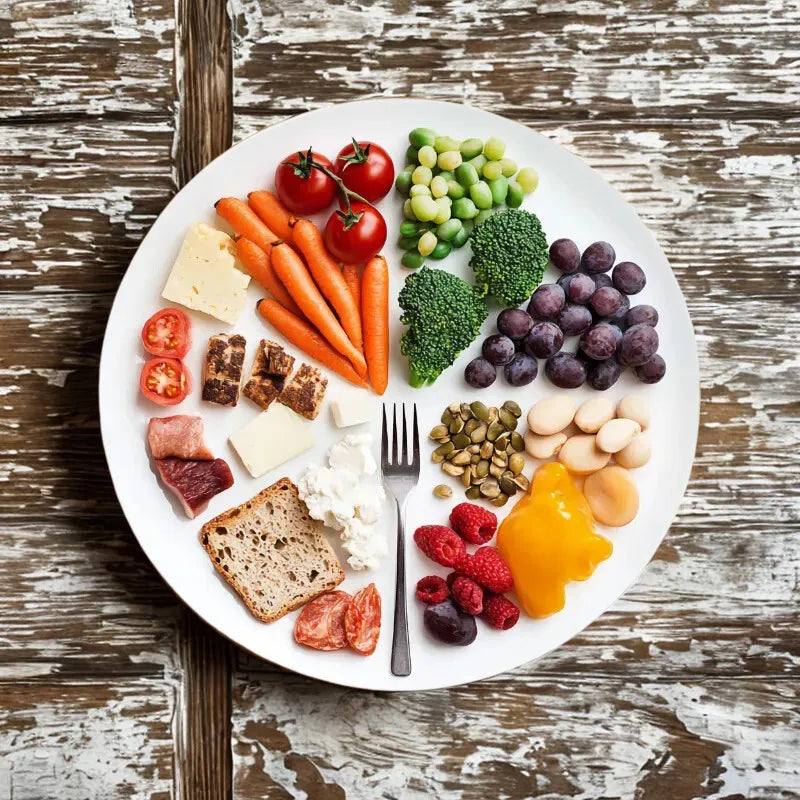
Healthy Eating: The Foundation of Every Successful Training Routine
Share
We often think that results come only from long, intense workouts. And yes—training matters. But what if you can't always make time for the gym, the track, or the field? Life gets busy. Work, family, or recovery from injury can make regular workouts challenging.
The truth is: nutrition is your most powerful ally, especially when your time for training is limited. A well-structured diet can help you make progress, feel energized, and recover better—even if you’re not training as much as you’d like.
Why Nutrition Matters More Than You Think
When you eat well, you're not just avoiding junk food—you're fueling your body with what it needs to function at its best. Your food choices affect everything:
- Energy levels
- Hormonal balance
- Muscle recovery
- Sleep quality
- Mental clarity
Without a solid nutritional base, no amount of training will deliver optimal results. But with the right diet, even a few workouts per week can move you toward your goals surprisingly fast.
The Power of Pairing Nutrition with Limited Training
Let’s say you can only work out 2–3 times per week. That might seem like too little, but if your meals are consistent, balanced, and goal-oriented, you’ll still be able to:
- Lose body fat
- Build lean muscle
- Improve endurance
- Feel stronger and more motivated
That’s because what you eat affects how your body responds to the training you do manage to fit in. Food becomes a tool for maximizing results, not just a way to satisfy hunger.
How to Build a Stable and Sustainable Eating Routine
So how do you build a nutrition plan that supports your fitness goals without adding stress or becoming too restrictive?
Here are some practical tips:
1. Meal Prep is Your Friend
Set aside time once or twice a week to prepare meals in advance. Cook some protein (chicken, eggs, beans), roast vegetables, and portion out healthy carbs like rice, sweet potatoes, or quinoa. This makes healthy eating automatic, not a daily decision.
2. Stick to Whole Foods
The fewer ingredients, the better. Think fruits, vegetables, lean meats, nuts, seeds, and whole grains. These foods give you the most nutrients with the least effort.
3. Fuel Around Your Workouts
Try to eat a small meal or snack 1–2 hours before training (something with carbs and a bit of protein), and follow up with a recovery meal within 1 hour after. This supports muscle repair and keeps energy high.
4. Balance Every Plate
A simple rule:
- Half your plate = veggies
- A quarter = lean protein
- A quarter = quality carbs
Add healthy fats like olive oil, avocado, or nuts in moderation.
5. Don’t Overcomplicate It
Perfection isn’t the goal—consistency is. You don’t need to count every calorie or cut out entire food groups. Instead, aim to eat well 80% of the time. That’s where long-term progress comes from.
6. Hydrate Like an Athlete
Water affects everything from digestion to focus to training performance. Start your day with a glass of water and keep sipping throughout the day—especially before, during, and after workouts.
Bringing It All Together
If you’re frustrated that you can’t train as often or as hard as you’d like, don’t give up. Dial in your nutrition and let it work for you. The combination of smart eating and even minimal training can create serious momentum.
Remember:
- You don’t need to be perfect, just consistent.
- Food isn’t the enemy—it’s your biggest training partner.
- Your plate is just as important as your workout plan.
- With a healthy, balanced diet and a few solid training sessions each week, you’ll be amazed at what your body can achieve.
Eat smart. Train when you can. Progress will come.
